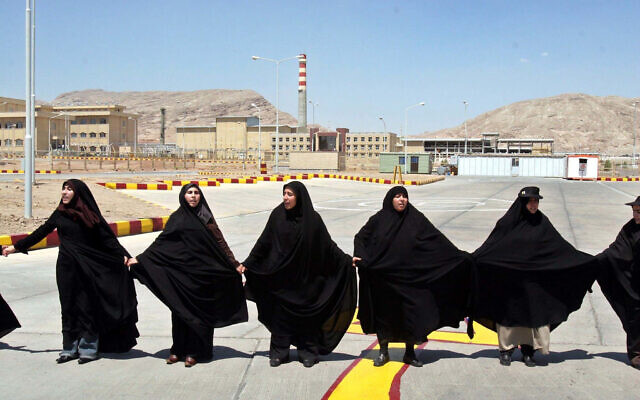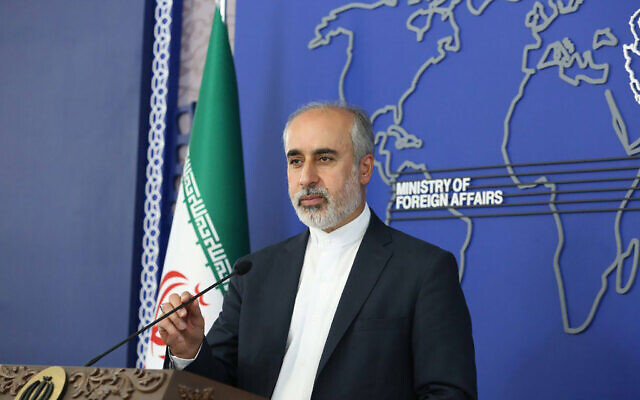Washington confirms draft pact to revive JCPOA sent via EU mediators, will study it and respond, after Tehran says its reply was ‘constructive’

WASHINGTON — The United States said Thursday it had received a new response from Iran on reviving a nuclear deal but that it was not “constructive.”
The response was the latest in a back and forth between the adversaries via mediators from the European Union, whose foreign policy chief Josep Borrell on Wednesday had hoped for a resolution within days to revive the 2015 nuclear accord.
The European Union put forward on August 8 what it called a final text. Iran proposed changes to it — largely accepted by the Europeans — to which the United States issued a response through the mediators.
Iranian foreign ministry spokesman Nasser Kanaani said early Friday Iran time that Tehran sent another reply in response to the US position, according to state news agency IRNA. He called the Iranian proposal “constructive” and expressed hopes that a deal would be finalized.
Washington did not share Kanaani’s enthusiasm for the proffer.
“We can confirm that we have received Iran’s response through the EU,” State Department spokesman Vedant Patel said late Thursday in Washington.

“We are studying it and will respond through the EU, but unfortunately it is not constructive.”
A senior Biden administration official was similarly critical about the Iranian response, but would not provide specifics.
“We are studying Iran’s response, but the bottom line is that it is not at all encouraging,” the unnamed official told Politico. “Based on their answer, we appear to be moving backwards.”
A European diplomat echoed that sentiment, telling the US news site that Tehran’s proposal appeared “negative and not reasonable.”
White House national security spokesman John Kirby had told reporters Wednesday that the US believes “we’re closer now than we had been in certain recent weeks and months” to finalizing a deal with Iran, and that the US is “still hopeful” for a positive outcome to the talks.
The US has declined to discuss details publicly but disputes include Iran’s insistence on the UN nuclear watchdog closing a probe of three undeclared sites suspected in nuclear work before the 2015 nuclear deal.
On Wednesday, Iranian Foreign Minister Hossein Amir-Abdollahian said Iran was looking for stronger US guarantees and an end to investigations into Iranian nuclear activity by the International Atomic Energy Agency — something the US and the IAEA both oppose.
President Joe Biden took office aiming to revive the accord, which was trashed in 2018 by his predecessor Donald Trump, who unleashed a volley of fresh sanctions on the cleric-run state.
As reported by The Times of Israel
